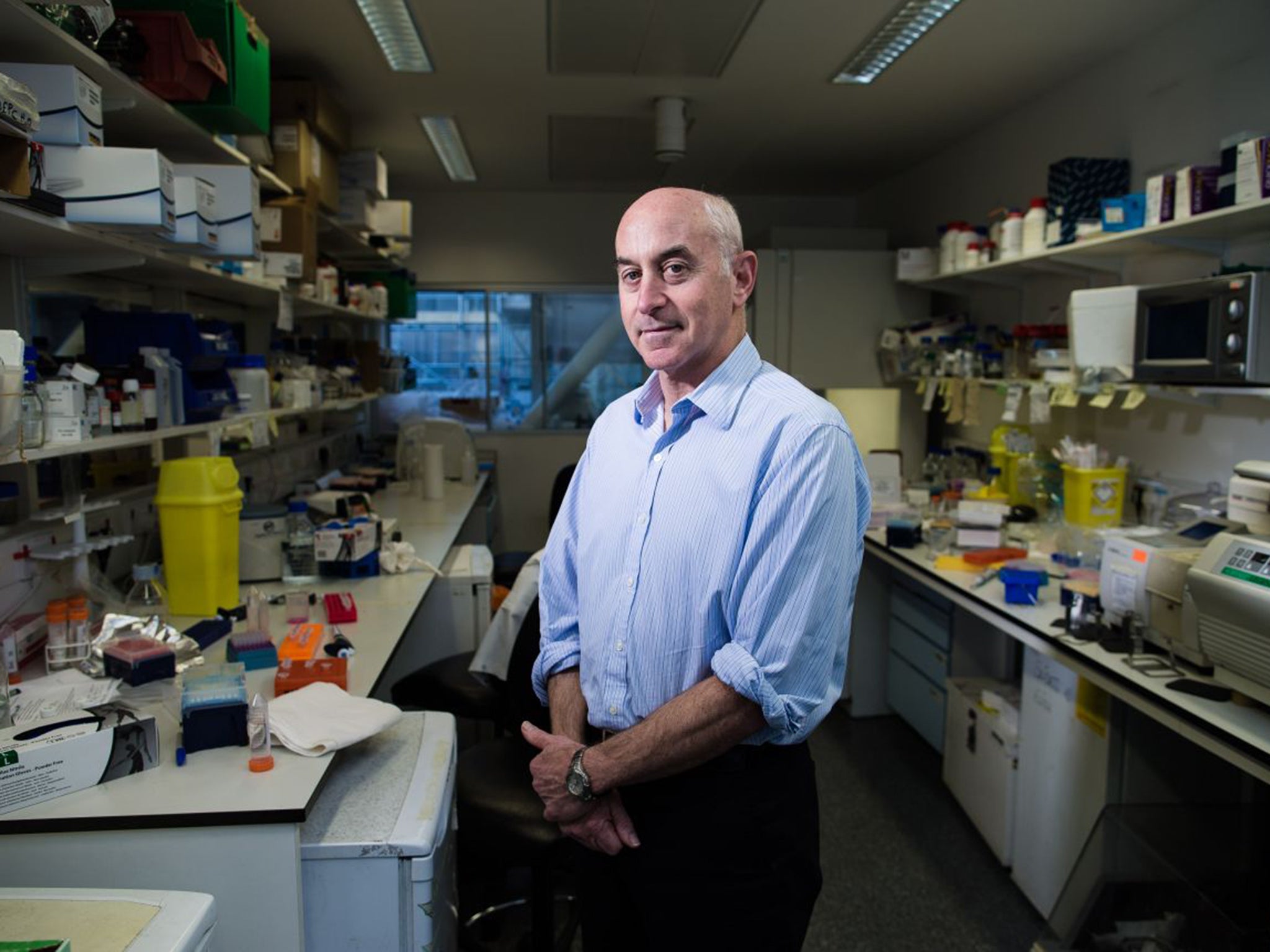Researching rare diseases can be a lifesaver for children
Professor David Goldblatt explains to Jamie Merrill why 30 per cent of patients diagnosed with certain illnesses won’t live beyond the age of five

The number of children suffering from “rare” diseases could equal those who are diagnosed with cancer, a top paediatric-health researcher has warned.
David Goldblatt, director of clinical research and development at Great Ormond Street Hospital (GOSH), said there were signs that rare diseases in children were “more common” than cancers.
He said: “If we put all the rare diseases together there are suggestions that they are more common than cancer. This is not a niche thing.”
Along with its research partner, the UCL Institute of Child Health, GOSH is home to the largest concentration of paediatric-health researchers in Europe and focuses heavily on rare diseases, including genetic disorders, rare cancers, cystic fibrosis, muscular dystrophy, diseases of the immune system, birth defects and infectious diseases.
“The tradition at GOSH of treating rare diseases other doctors couldn’t goes right back to 1852 when Charles West founded the hospital. And if we jump to today we are known for expertise in rare, chronic and complex cases,” added Professor Goldblatt. He came to GOSH in 1986 from his native South Africa and has a research programme studying bacterial conjugate vaccines to combat meningitis.
In total, there are more than 6,000 recognised rare diseases with 75 per cent of these affecting children, however only 5 per cent of funds spent on medical research in the UK are directed towards children. This is despite the fact that 30 per cent of children diagnosed with a rare disease won’t live beyond the age of five.
Researchers are realising that rare diseases represent a considerable burden on the NHS and GOSH is currently constructing a centre for rare disease in children, but Professor Goldblatt admitted the “current NHS climate” was placing pressure on paediatric health researchers across the country.
He added that funding from GOSH’s charitable arm plays a “vital role” in what he called “pump-priming” research projects that would otherwise be hard to get off the ground. In recent years it has supported gene therapy and trachea-transplant research, while funds from the charity also paid to give the hospital’s gene-therapy laboratory a “much-needed” upgrade. Money raised from The Independent’s Give to GOSH appeal will continue to allow researchers to continue their vital work.
GOSH is home to 51 different paediatric clinical specialists, giving Professor Goldblatt and the team he works with a unique reservoir of information and patient conditions.
“GOSH is unique from a research perspective as we don’t look at a child or a particular disease in isolation,” he said.
“We partner with researchers and NHS trusts from across the county. We think of ourselves as the keeper of the nation’s treasures, just like the British Museum.
This unique mixture of clinical breadth and research power led Professor Goldblatt to consider plans to introduce a “generic consent” scheme where all patients arriving at GOSH would be automatically asked whether they wished to make their information available for medical research. The voluntary scheme, which is similar to a consent scheme at the Royal Marsden Hospital for adult cancer patients, would allow researchers to make the most of the “value of data,” said Professor Goldblatt, who is also the head of the Immunobiology Unit at the Institute of Child Heath. Data would be totally anonymised and used within a “strict ethical framework”, he added.
“Of course we need to be careful about the way we use [and store data}, but the families we see are often desperate to share their child’s genetic code to get a clue towards a possible cure,” he said.
To Give to GOSH go to: http://ind.pn/1Mydxqt
To find out more about our appeal and why we're supporting GOSH go to: http://ind.pn/1MycZkr
DONATE
NOW
Join our commenting forum
Join thought-provoking conversations, follow other Independent readers and see their replies
Comments
Bookmark popover
Removed from bookmarks